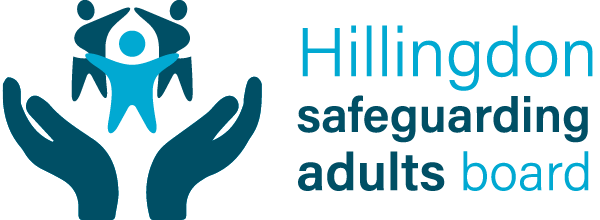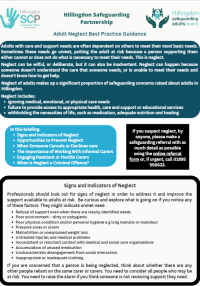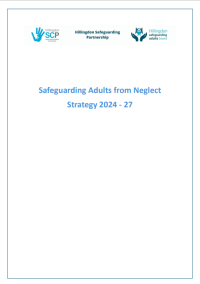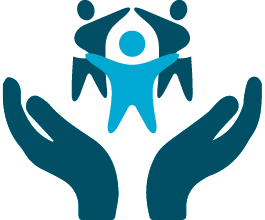Neglect of Adults
Adults with care and support needs are often dependent on others to meet their most basic needs. Sometimes these needs go unmet, putting the adult at risk because a person supporting them either cannot or does not do what is necessary to meet their needs. This is neglect.
Neglect can be wilful, or deliberate, but it can also be inadvertent. Neglect can happen because someone doesn’t understand the care that someone needs, or is unable to meet their needs and doesn’t know how to get help.
Neglect Includes
- ignoring medical, emotional, or physical care needs
- failure to provide access to appropriate health, care and support or educational services
- withholding the necessities of life, such as medication, adequate nutrition and heating
Signs and Indicators of Neglect
Professionals should look out for signs of neglect in order to address it and improve the support available to adults at risk. Be curious and explore what is going on if you notice any of these factors. They indicate unmet need.
- Refusal of support even when there are clearly identified needs.
- Poor environment – dirty or unhygienic
- Poor physical condition and/or personal hygiene
- Pressure sores or ulcers
- Malnutrition or unexplained weight loss
- Untreated injuries and medical problems
- Inconsistent or reluctant contact with medical and social care organisations
- Accumulation of unused medication
- Uncharacteristic disengagement from social interaction
- Inappropriate or inadequate clothing
What To Do If You Are Concerned
If you are concerned that someone’s needs are not being met, it could mean that they are being neglected. Or it could mean that they need an assessment or review of their care and support needs.
If you suspect neglect, by anyone, please make a safeguarding referral to Adult Social Care with as much detail as possible using the online referral form or, if urgent, call 01895 556633.
Downloads:



